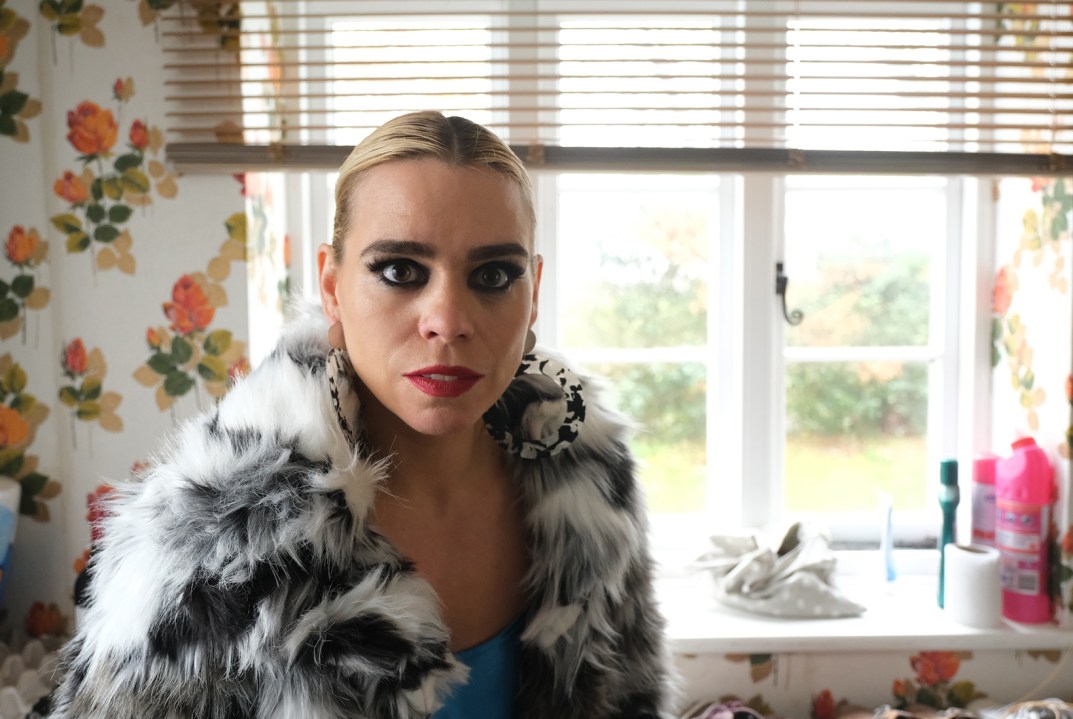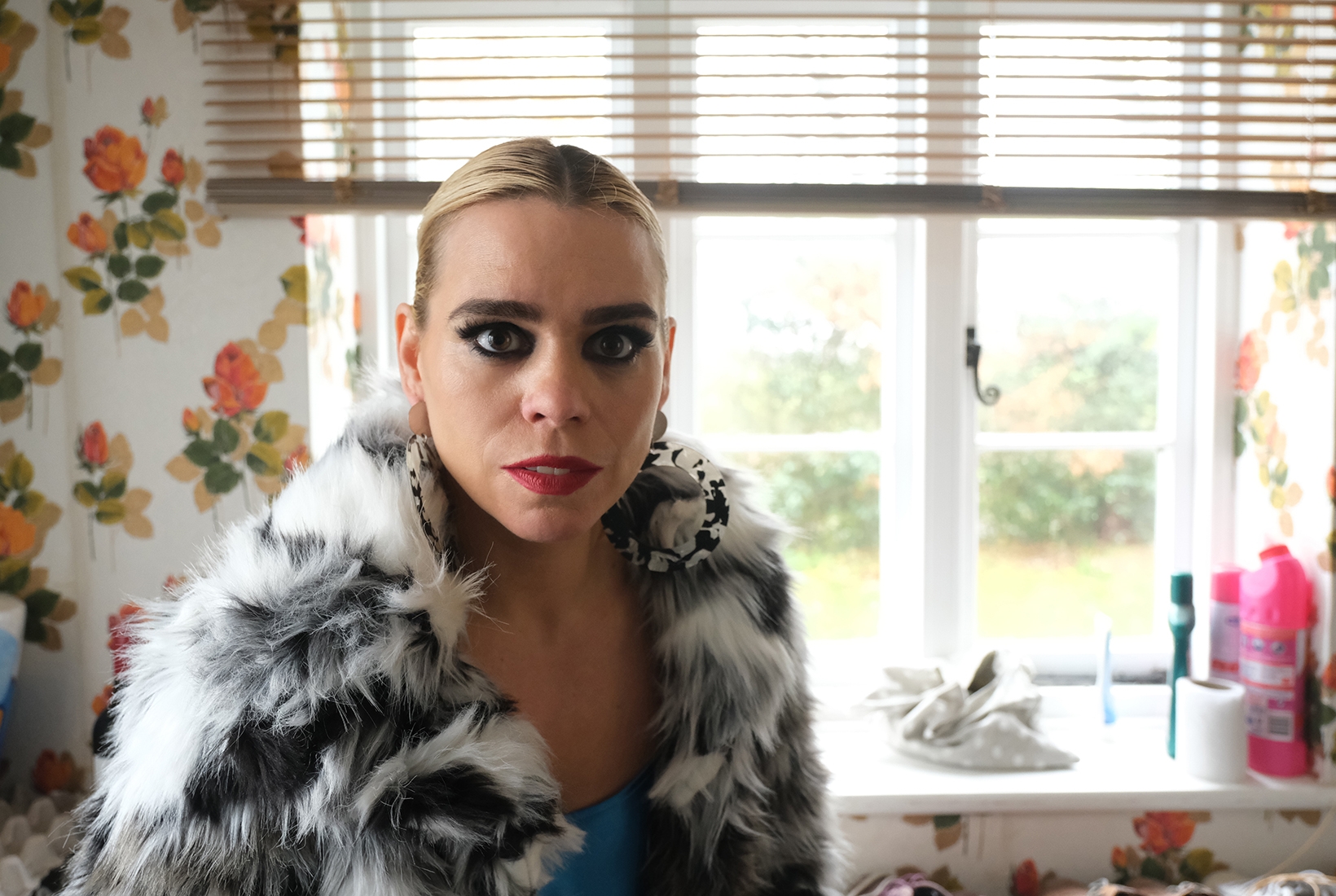Fifteen minutes into the first episode of I Hate Suzie, main character Suzie Pickles was doing a photoshoot in her country cottage for Esquire magazine. ‘We don’t know what we’re looking for right now,’ the photographer told her. ‘We’re just going to cycle through some feelings and see where we are.’ What he didn’t know, but we did, was quite how many feelings Suzie (Billie Piper) had already had to cycle through by then.
The programme began with her thrilled to hear that she’d bagged a Disney film role and cracking open the champagne. A few minutes later, she learned that some sex photos of her had been hacked and were about to be posted online (at which point the appearance of her son’s rabbit in her eyeline symbolically confirmed that a rabbit hole awaited). It was then that the Esquire team arrived in a blizzard of media jargon to take her furniture into the garden and replace it with something more suitable for their impenetrably expressed needs. Meanwhile, her husband Cob was studying his phone with unmistakeable fury.
Even serious documentaries of the 2020s can’t resist the use of flippant little TV tics
All this naturally required not just Suzie but the programme itself to do some serious juggling of emotional states — which it did with aplomb, as Lucy Prebble’s script blended the media satire with properly funny Fawlty Towers-style farce and a properly painful sense of lives unravelling. (Not coincidentally, Prebble also writes for Succession, which has the same ability to combine wildly disparate elements without them ever undermining each other.) Only right at the end did the episode put a foot wrong when Suzie suddenly burst into a musical number that added a note of jarring whimsy to the mix.
In the customary way of new series, episode two followed immediately, this time beginning with an understandably distracted Suzie appearing at a convention for a science-fiction series she once starred in. (Quo Vadis: ‘When the furthest place in the galaxy, is home.’) The first audience question was duly from a nerdy bloke who’d found a plot discrepancy in the series. The second was a lot more troubling. Having gone for some faux-sympathy about the terrible invasion of privacy involved, a right-on woman quizzed Suzie forensically about the dirty photos — wondering if she was denying it was her only because she was pictured pleasuring ‘a penis of colour’. To console herself, Suzie then headed for the VIP cocktail bar where she was lucky enough to bump into a fellow-actor with a ready supply of cocaine, and embarked on a night of impressively prolonged debauchery.
In interviews, Prebble and Piper — credited as the co-creator — have made no bones about following in the recent tradition of programmes like Fleabag and I May Destroy You, where all decorum is abandoned in favour of darker truths about the female id. At times, this perhaps leads to a certain self-consciousness about its own boundary-breaking. (Behold! See our fearlessness!) Nonetheless, I Hate Suzie is still a fine piece of work that convincingly, often hair-raisingly and presumably knowledgeably paints showbiz life at its most luridly weird.
With luck, The Unbelievable Story of Carl Beech (BBC2) will leave future generations utterly bewildered by how unhinged British society must once have been. Then again, it’s hard not to be utterly bewildered already, just a few years after the events it depicted took place.
In 2014, you may remember, Beech’s allegations that he’d been systematically abused as a boy by a random coterie of establishment figures made the lead on the BBC news, were enthusiastically endorsed by Tom Watson MP and declared ‘credible and true’ by the Metropolitan Police, who vowed to ‘follow the evidence wherever it led’. Which turned out to mean that they’d raid Leon Brittan’s house a few weeks after he died and take away his collection of Morse videos, but not that they’d notice Beech had none of the many injuries he’d claimed to have received and owned a computer full of child pornography.
The programme’s maker Vanessa Engle, an old documentary hand, could possibly have gone in harder on the people who’d given Beech credence. Nonetheless, by letting the story speak largely for itself — with the aid of some powerful interviews with the relatives of the falsely accused (and, in a definite coup, Beech’s ex-wife Dawn) — she left us in no doubt about either the pain he caused or the sheer absurdity of it all.
Still, those future generations might also be a bit surprised about how even serious documentaries of the 2020s couldn’t resist the use of flippant little TV tics, however out of place. How else to explain, for example, the use of Charles and Eddie’s cheery pop song ‘Would I Lie to You?’ over the closing credits? Or, far worse, the comic clips of Pinocchio that were interspersed throughout the programme?







Comments